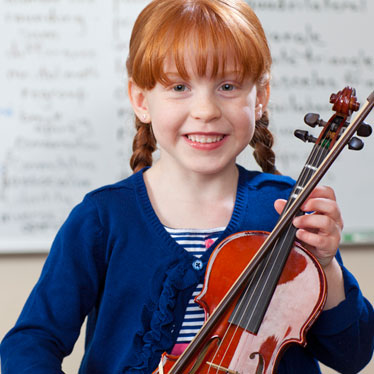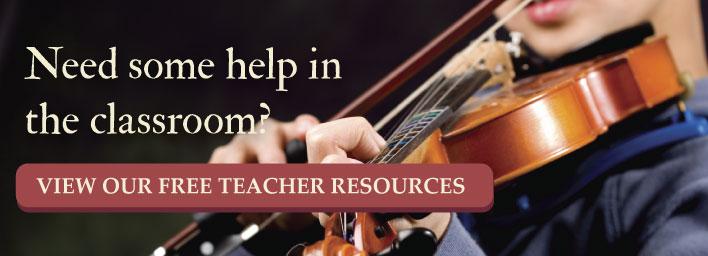How To Make Auditions Fun For Your Students

Ah, the dreaded audition. Although it’s part of every musician’s life, for many students the thought of an audition conjures up all sorts of hideous images like freezing on stage or making an embarrassing blunder. As a music instructor you know that students are exposed to auditions very early in their education. Therefore, finding ways to make auditions fun for students, instead of the frightening and nerve-racking experience they are for most people, can go a long way toward building a healthy approach to auditions later in life.
These teaching tips can help you transform the way students view auditions. By making the experience something to look forward to, you’ll be giving your students the tools they need to ensure that they do their best. Plus, you’ll be teaching tips that will be beneficial in other areas of life, showing students how to conquer their fears using the right attitude, so that they can overcome life’s challenges.
Tip #1: Start with Communication
Whether you’re teaching beginners or seasoned musicians you need to open channels of communication first. Ask your students how they feel about doing an audition. Are they nervous, frightened, or worried? Ask them why. Usually, the fear of auditions comes from being afraid of messing up. Students want to do well but are often afraid of making mistakes. Fears like these can be diminished by examining them. What’s the worst that can happen? Talk about it. Often, just by voicing what scares them or makes them nervous about an audition can eliminate or lessen their dread.
Also, while you’re discussing audition fears, talk about healthy ways to reduce them. Explain to students how important the right amount of sleep is and how nutrition plays a role in their confidence and abilities. Healthy eating influences everything you do, including playing music. A strong immune system, plenty of high protein snacks and avoiding processed sugars can make it easier for students to do their best during an audition. And when they’re able to do their best, auditions are much more fun.
Tip #2: Teach Relaxation/Breathing Techniques
One of the best ways to help students approach auditions as a fun extension of their music education is to show them breathing techniques that reduce stress and improve relaxation. When you’re all keyed up, performing an audition can be miserable and prone to mistakes. However when students are calm, the audition takes on the elements of a fun exercise. Whoever does the best, wins. That kind of competition, rather than creating stress, promotes the idea of an enjoyable challenge.
Have your students practice stress management and relaxation breathing techniques in class. There are a number of free resources online that demonstrate various breathing techniques, both while performing and before an audition.
Tip #3: Teach Visualization Techniques
Another very effective way to make auditions fun is to show your students visualization strategies. These can be used to improve performance and reduce stress during an audition. The idea is for students to see themselves succeeding with perfect execution, precise timing and excellent tone. Since the brain doesn’t make distinctions between imagined scenarios and real ones, this type of training helps remove anxiety related to unfamiliar circumstances and performance issues. It can also be fun to imagine the judges as something non-threatening, like kittens.
Tip #4: Create a Mock Environment
In addition to the previous teaching tips, creating a mock audition setting can also help students overcome their dread of performing alone and make the entire audition experience more fun. Arrange your classroom similar to what the students will face. Place a screen in front of a chair and music stand, and have other students act as the judges. Creating an environment like the ones used for auditions can reduce the unfamiliarity students feel, and the stress produced by it.
Generate a simplified list for the class judges with rankings from one to ten for aspects of the performance. Elements like sound projection and dynamics, tonal quality and execution, should be included. Also, distribute participation prizes. Although in real life no one gives you rewards for trying, showing appreciation for your students “practice” audition can help them view the process as just another part of their education.
You should participate, too. Maybe even make a few mistakes so that the class can have a little fun with their teacher. When your students see that nobody’s perfect, it can help lighten the pressure they feel.
Giving your students the confidence to approach auditions with the right attitude will not only make auditions easier for them, it will help them establish lifelong coping methods for dealing with stressful situations. As an instructor, that’s one of the best tips you can teach.


